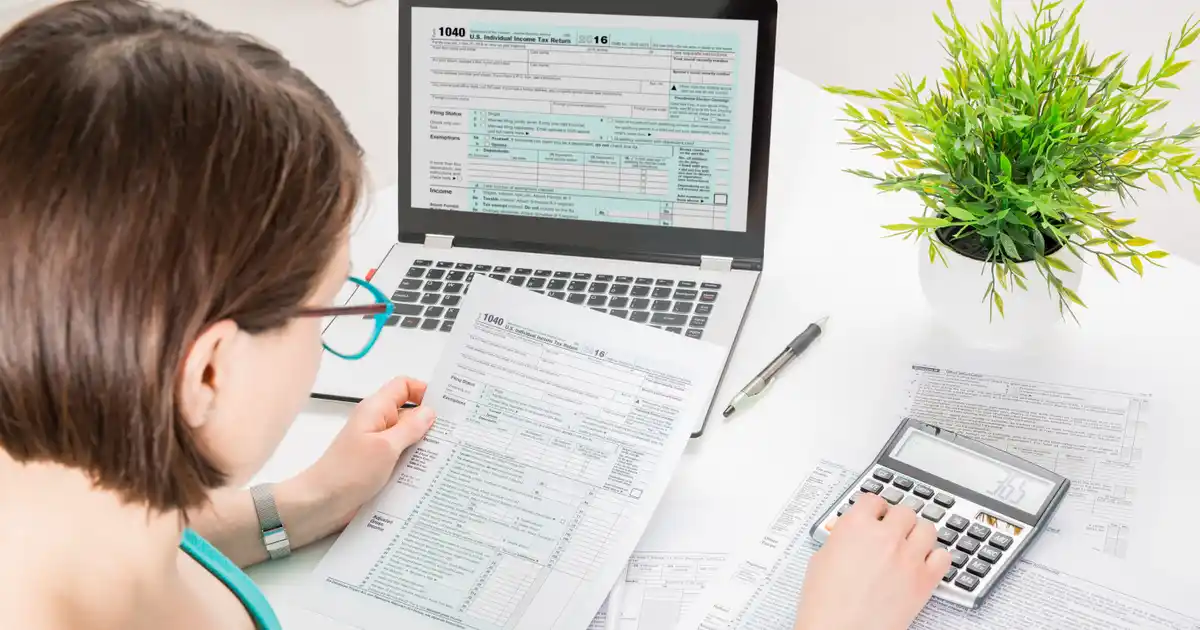With more employees working from home than ever before, the subject of tax deductions has become very topical. Perhaps you’ve heard other remote workers brag about the expenses they’ve managed to trim from their income taxes by working from home.
Well, enough with the anecdotal hearsay! Let’s determine whether you’re eligible to save money working from home, and if so, what kind of deductions you can claim.
What are WFH Tax Deductions?
Work from home (WFH) tax deductions are business-related expenses that you can subtract from your revenue and reduce your tax bill.
These expenses can include equipment for your home office, such as furniture, electronics, and stationery. It can also cover utilities related to the heating, cooling, lighting, and internet capabilities of your workspace.
 Shutterstock
ShutterstockWho’s Eligible?
Not everyone who works from home is eligible for WFH tax deductions. In fact, these reductions are mostly reserved for business owners and the self-employed.
Employees who earn regular wages and salaries from their employers (known as W2 employees) are generally not eligible. Unless there are extenuating circumstances, W2 employees who voluntarily left office culture in order to work from home cannot subtract these expenses.
 Shutterstock
ShutterstockMaking Your Space Deductible Friendly
If you work from home with a W2 job and also have a side business, your eligibility will depend on whether you have a separate home office for each job. Sure, it may seem economical to use your W2 workspace for your side hustle, but doing so will disqualify you from claiming your home office as a tax write-off.
Generally speaking, it’s best to design any deductible-friendly home office to reflect the austere needs of your business. Even if you’re only self-employed for a few months, you can still claim a partial home office deduction as long as you keep it professional.
If your workspace exists in one corner of your living room or home gym, make an effort to keep that corner orderly. Being able to account for the actual size and function of your home office will make calculations (such as ascertaining your square footage and utilities) much easier come tax season.
 djile / Shutterstock
djile / ShutterstockHow Do WFH Deductions Work?
It’s good to remember that WFH deductions do not operate like tax credits. In other words, having $5,000 worth of business expenses won’t chop a clean $5,000 off your tax bill. Rather, the amount you’re taxed on will be reduced by the corresponding claim amount.
Keep in mind that your deduction will largely be commiserate to your business income for the year. For example, if you’re a freelance graphic designer who hopes to claim $10,000 worth of expenses — but only earned $7,000 over the year — your deduction may be a lot less than you hoped.
 Shutterstock
ShutterstockGetting Organized
If you run a legitimate business or operate a freelancing job out of your home, you’re in a great position to reduce your tax bill by taking advantage of these deductions. However, you need to be diligent about keeping records of any expenses you plan to claim.
While it may seem excessive to keep an itemized record of every business-related expense in case you get audited, that’s precisely what the IRS recommends you do. It’s advised that you save every physical and digital proof-of-payment related to your work from home, and organize them in a comprehensive book for easy access.
In rare cases where receipts are unavailable or lost, you should jot down notes detailing the date, cost, and person or business involved in the transaction.
 Shutterstock: sophiecat
Shutterstock: sophiecatSimple Vs. Regular Method
There are two available approaches when claiming your WFH deductions: the simplified method and the regular method. The simple method allows qualified workers to expense $5 per square foot of their office up to 300 square feet (for a maximum of $1,500).
On the other hand, the regular method requires more detailed information, such as the percentage of your home used for business, a depreciation deduction for that portion, as well as exacting records of your expenses.
 Shutterstock: New Africa
Shutterstock: New AfricaWhich Method Is Better?
Many eligible workers likely gravitate toward the simplified method because, well, it’s simple. Tax season is stressful enough! However, if you’re a numbers person who is determined to reduce their tax bill, the regular method can reward the extra hassle with greater deductions.
Unlike the simple method, which you can complete as you calculate your income, the regular method requires routine effort prior to filing your taxes. While tracking your expenses and investing in a more detailed measurement of your home office may seem daunting, the regular method has no maximum deduction limit – which is certainly a draw! Plus, it allows you to carry over unused business expenses from the previous year.
 Shutterstock
ShutterstockCalculate Before You Choose
If you can’t stand tax season, it makes sense to go with the simple method. However, if you stand to gain significant savings by going with the regular method, it might be worth drafting up totals from both methods in order to see which approach serves you better!
Whichever option you choose, make sure it’s one you’re willing to stick with. Once you’ve chosen a method for a particular tax season, you cannot change back to the other method in the same year. Even selecting the simplified method one year and the regular method for a later year will create an extra step, as you’ll have to figure out the depreciation deduction for the subsequent year.
 Shutterstock
ShutterstockTip For W2 Employees
W2 employees who are disqualified from taking part in WFH deductions still have opportunities to save. Many employers have reimbursement plans that require you to log an expense report as a means of accounting for your business purchases. A speedy reimbursement is preferable to taking a deduction for the same expense many months later.
 Shutterstock: fizkes
Shutterstock: fizkesBe Honest
Whether you’re able to get reimbursed on certain office supplies or deduct your entire workspace, be honest with yourself about the expenses you’re claiming. You may insist that your Nintendo Switch is reducing your stress and therefore making you a more effective employee, but don’t try to write it off.
In moments of uncertainty, ask yourself if the item you’re about to claim is necessary for your role. Items that are exclusively used for business purposes should be easy write-offs, so you don’t want to muddy the waters by claiming suspicious expenses.
 Shutterstock: Claudia K
Shutterstock: Claudia K







